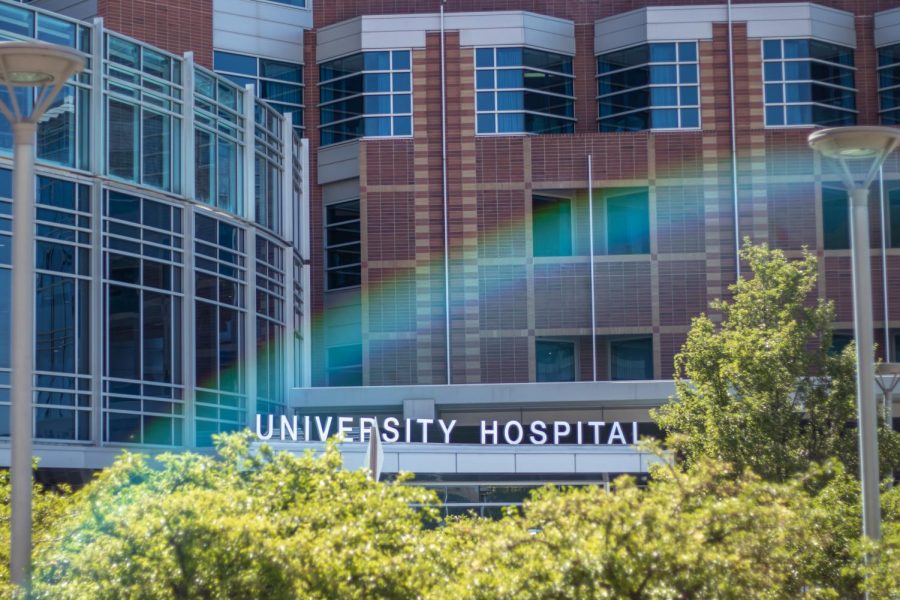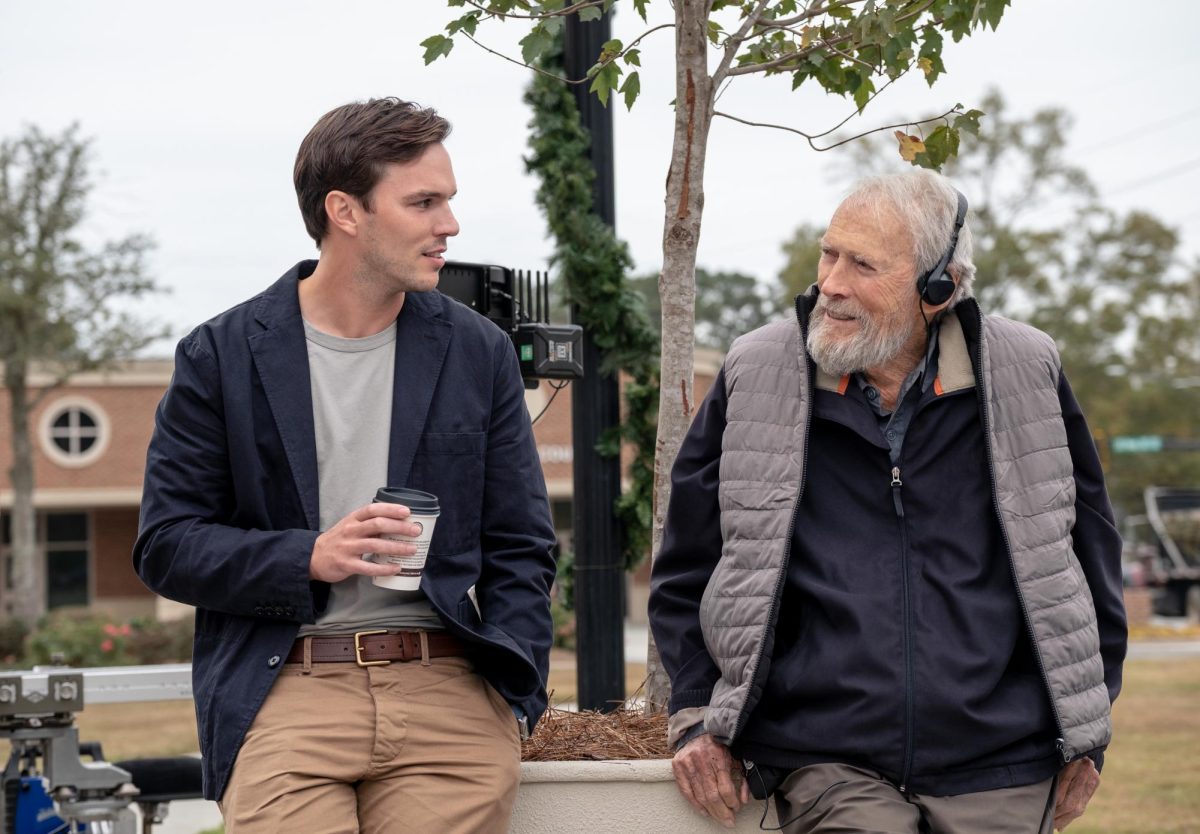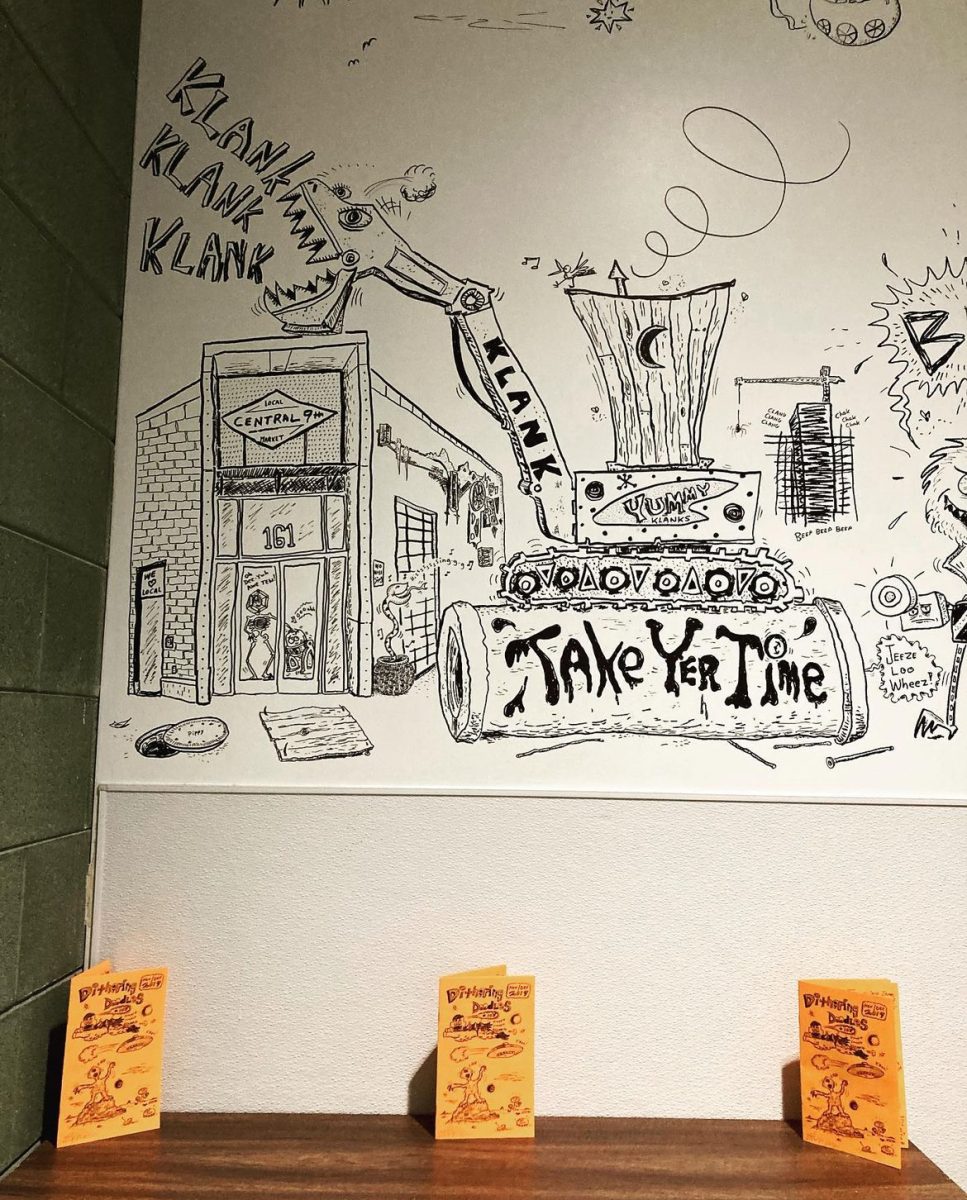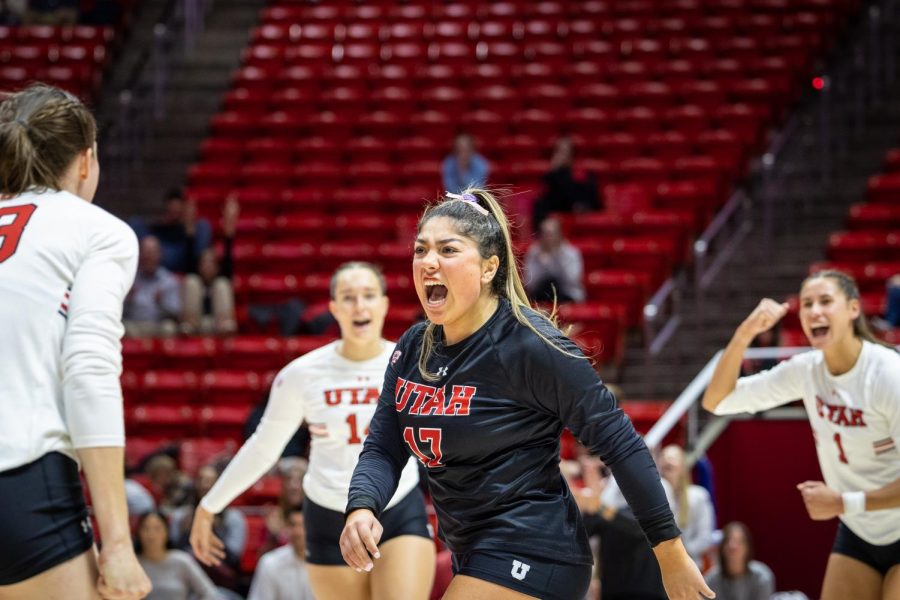U of U COVID-19 Clinic Still Receiving 105 Referrals a Month
A sign above the entrance to the University of Utah Hospital on the University of Utah Medical Campus, Salt Lake City, UT on Friday, Sept. 13, 2019. (Photo by Mark Draper | The Daily Utah Chronicle)
February 12, 2023
Since July 2021, University of Utah Health’s COVID-19 Long-Hauler Clinic has cared for over 1,800 patients. In 2023, the clinic still sees an average of 105 referrals per month with an influx after every new variant.
University of Utah Health started accepting patients in June 2021 when the comprehensive COVID-19 clinic launched to help people with prolonged COVID-19 symptoms. When symptoms extend past eight weeks, U health professionals recommend patients seek referrals to their program.
The state of Utah has seen more than 1,080,067 COVID-19 cases, 41,423 hospitalizations, and 5,235 deaths since the start of the pandemic. Salt Lake County alone makes up for more than 406,380 cases, 17,573 hospitalizations and 1,805 deaths, according to state government data.
One in five adults who have had COVID-19 experience the effects of long COVID-19, according to the Centers for Disease Control and Prevention. Of the 1,800 patients the University clinic has seen, 67% of patients were female. Forty-nine percent of patients are from rural and underserved areas with low health equity, said Dr. Jeanette Brown, medical director of U Health’s COVID-19 long hauler clinic.
Long COVID-19 is seen in all ages but is most frequently seen at ages between 26 to 62, the peak falling between 36 and 50 years old based on University findings.
Many think long COVID-19 is affecting mostly older Americans, but Brown said this is not accurate. With 67% of female patients being around 36 to 50 years old, the “economic backbone of families” are affected most.
Patients struggling with long COVID-19 can struggle to work and may even lose their health insurance, according to university data Brown provided. Forty percent of patients are working reduced hours and 20% are unable to work, making it challenging to care for children and older relatives.
The primary goals of the University’s COVID-19 clinic is to decrease the burden on hospitals by providing a specialized setting for ongoing care, improving patient outcomes by managing the various symptoms and improving public health by immediately implementing advances in long COVID-19 research and care, Brown said.
The clinic decreases the burden on hospitals with its streamlined system that directs patients to the subspecialist they need. After patients are referred to the clinic by their primary care doctor, they are evaluated.
“We made our evaluations an hour long because you can’t learn enough about someone in 15 minutes,” Brown said.
From there, patients will be sent to the subspecialist they need. The University has subspecialists in dermatology, cardiology, endocrinology, ENT, infectious disease, nephrologist, neurologists, pulmonologists, psychiatrists and social workers on their specialist team within the clinic.
Since the start of the pandemic, the clinic has put in referrals to 35 different sub-specialists, Brown said.
“Medicine is a team sport, no one can know everything, treating COVID-19 is like jumping out of an airplane and trying to make the parachute on the way down,” Brown said.
She said patients are seeing steady improvements with specialized diagnoses and programs for each individual case.
Ada Mae Crouse, a Salt Lake City resident, said she “couldn’t get out of bed and couldn’t walk up the stairs” but saw outstanding improvement during her treatment at the clinic. She fought severe pain for a full year before attending the clinic.
After recovering through the clinic Crouse said, “I think the long COVID clinic is frankly amazing, and they’re so reassuring, that no, you’re not making this up, we have lots of patients like this.”
The clinic has nine different cohorts researching COVID-19, one being the examination of pregnancy complications from long COVID-19, Brown said. Researchers are following people who had COVID-19 during pregnancy to see if they develop long COVID-19 and following the babies to see if there are any adverse effects on the children from the exposure to SARS-CoV-2 while they were in utero.
For more information, look for updates on the University of Utah COVID-19 long hauler clinics website, or by reaching out to 801-213-0884.








